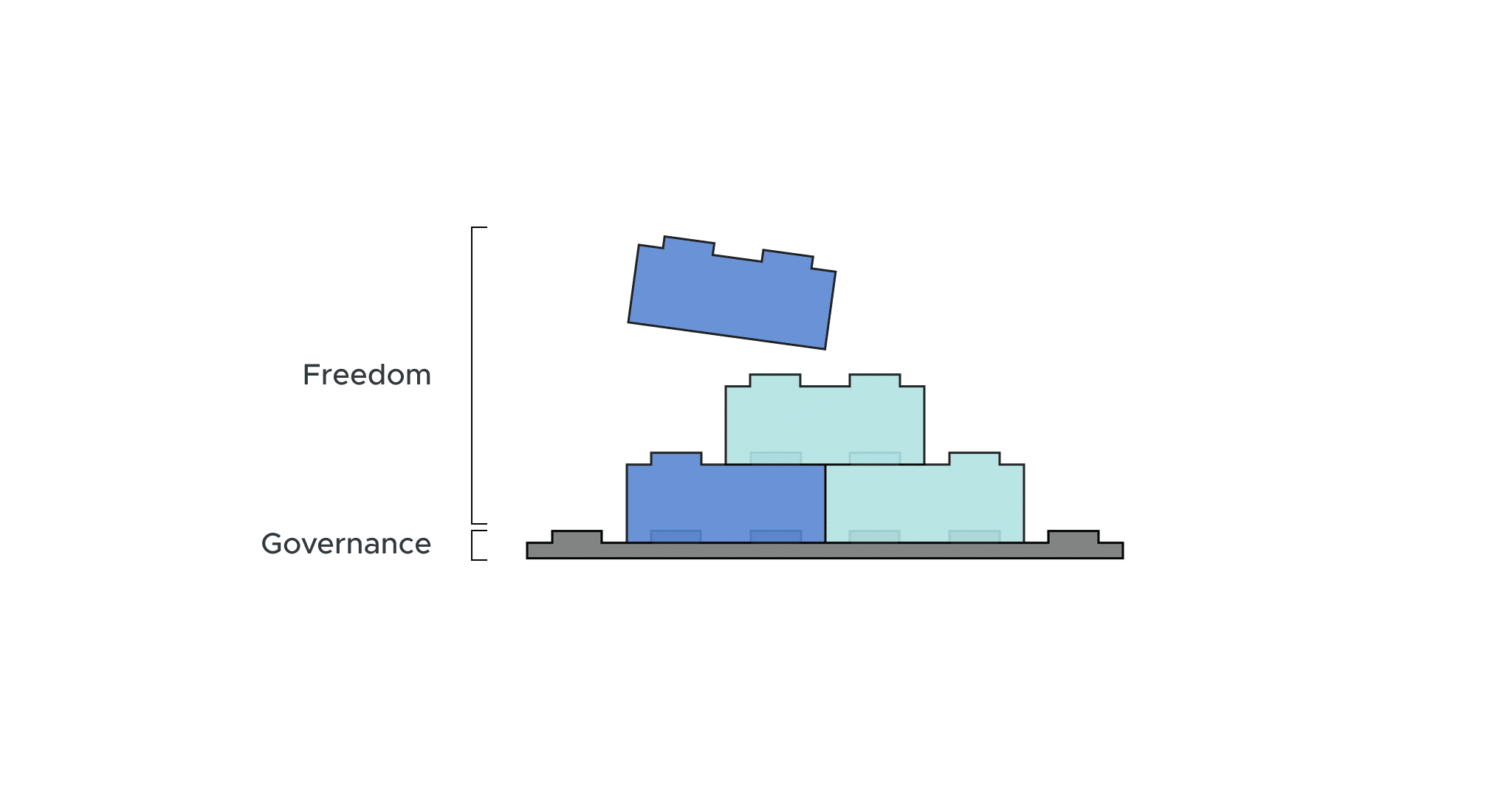
Composable Semantic Objects accelerate the creation of new data products
I have been a LEGO fan since I was a kid. It’s not just because the colorful blocks are fun to play with, but because they inspired my creativity, enabling me to create new worlds, structures, and scenarios.
LEGO blocks originated in the Billund, Denmark, workshop of Ole Kirk Christiansen, who began making wooden toys in 1932. Two years later he named his company LEGO after the Danish phrase leg godt (“play well”).
As I transitioned into adulthood, my passion for creation evolved. I became an enthusiast of data, dedicating myself to developing technologies that empower users to forge new data-driven realms. However, a formidable challenge consistently accompanied this aspiration: how to uphold data governance while fostering the ‘freedom’ to innovate with data.
At AtScale, our mission is to empower users to engage with data, aligning with the guiding ethos of LEGO, where “playing well’ with data is paramount, all while maintaining robust governance.
Today, I’m thrilled to unveil some exciting developments on our horizon. While I won’t divulge every detail just yet, I’m eager to shed light on why we’ve chosen to tackle this challenge and explain the significance of these innovations for data-driven organizations.
As organizations embark on their self-service journey, we’ve observed two distinct approaches to governance practice. The first involves centralized data and analytics teams, which typically focus on establishing consistency by implementing governance measures and documenting best practices. However, this approach often falls short of delivering the necessary business domain expertise and agility.
The second approach involves decentralized teams and communities, which present a contrasting challenge including unnecessary copies of data, inconsistent metrics definitions, and conflicting answers to the same questions.
So, the governance models in enterprises are often split into two groups:
- One group favors centralization and “control” (consistency, scalability, and efficiency)
- Another group favors decentralization and “freedom” (autonomy, contextualization, and innovation)
When Dave Mariani, co-founder, and CTO of AtScale, embarked on his journey with the company, he harbored a vision: to pioneer a ‘hub-and-spoke‘ approach to data governance that would bridge the gap between these two distinct groups.
Last autumn, we gathered in a room and started whiteboarding how to apply his vision to the modern data stack ultimately arriving at what we believe is the next chapter for the universal semantic layer.
- We envisaged a technology-agnostic semantic hub capable of serving all semantic models within an organization into a single, cohesive repository.
- In tandem, we developed an analytics mesh framework seamlessly integrated with the semantic hub. This framework empowers decentralized data product creation through shareable, composable semantic objects, much like the versatility of LEGO building blocks. This approach fosters data product creation without the need for cumbersome data movement.
The synergistic potential of these two concepts enables a franchise-style or hub-and-spoke governed approach to the modern data stack. With this innovative solution, organizations can realize three key benefits:
- Global Consistency: Establish a universal set of metrics, dimensions, and other semantic objects, ensuring consistency across the organization.
- Regional or Departmental Customization: Simultaneously, organizations can tailor regional or departmental versions of these semantic objects. This flexibility empowers decentralized teams to adapt and incorporate domain-specific variations to achieve precise business outcomes.
- Scaling data product creation and delivery by enabling the business domains (i.e. Finance, marketing, etc.) to create their own data products. This is achieved through the creation and utilization of shared, modular building blocks, akin to business “LEGO” components.
Dave and I are excited to unveil more details about this vision during our upcoming product webinar: A Look to the Future: The Universal Semantic Layer in the Modern Data Stack. Please view this on-demand session for an in-depth exploration of these groundbreaking innovations that enable governed, decentralized data product innovations through the analytics mesh. Plus, don’t miss out on an exclusive sneak peek through a live demo!


SHARE
Case Study: Vodafone Portugal Modernizes Data Analytics